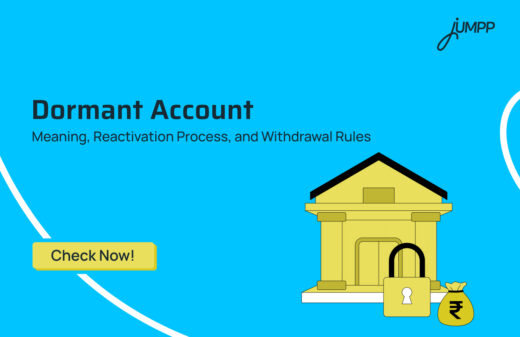How a Simple Corpus Fund Can Secure Your Family’s Future—Start Today

Life is unpredictable, and to deal with any kind of emergency, we need funds. Be it a medical emergency involving a family member or friend, a sudden layoff, a car breaking down on the way to your office, your daughter’s marriage, your child’s higher education, etc. Every such emergency can affect our daily cash flow or savings. One financial habit that can actually keep you safe is a corpus fund. This money, collected for a long-term goal, is not only specific to individuals like us. It works the same for organisations, NGOs, and more.
In finance, corpus is the total value of money you have set aside for a purpose. It is the end result of years of savings, investments, and compounding.
Is it just the capital you invest, or does it include growth as well?
Let’s figure it out and learn the corpus fund meaning in detail.
What is the Meaning of a Corpus Fund?
A corpus fund is the total amount of money that you can set aside for a specific purpose. The idea is that this money forms the foundation of your financial planning or investment. You can use it either for your regular expenses, your growth, or your future needs.
The key idea is that the principal amount remains untouched. That means you can only use the income or returns generated from it. This helps you maintain control over your spending.
You may have heard about NGOs keeping extra money aside for situations like floods, medical emergencies, etc. They often build a corpus fund to ensure survival during uncertain times.
This is how we, as individuals, can also make a corpus fund.
Corpus Fund in General Finance
It is the main capital or principal amount set aside. The fund is usually not spent directly. Instead, only the interest or returns earned from it are used for expenses.
For instance, a charitable trust may create a ₹10 crore corpus fund. With this, the trust won’t spend the ₹10 crore itself but will use the yearly returns (say ₹80 lakh at 8%) to run activities.
Corpus in Mutual Funds
The word “corpus” here means the total money pooled in by all investors in a mutual fund scheme. If 1 lakh investors invest ₹10,000 each, the corpus of the fund is ₹100 crore.
Corpus Fund in Pension or Retirement
In retirement planning, corpus means the total amount in your retirement fund. You know you have been saving and contributing to this fund for years. And thus, you can use it anytime you need it.
If you have ₹50 lakh saved in NPS at the time of retirement, that ₹50 lakh is your retirement corpus.
What is Corpus Amount?
The corpus amount is simply the total value of money that you keep aside for any specific goal in your life. It could be
- Your retirement corpus amount.
- Money for your child’s higher education
- A trip that you want to make after five years, etc.
For example, if you plan to retire at 60, you will calculate how much corpus amount you need to maintain your lifestyle without depending on anyone.
As explained in the previous example, if you put 50lakhs in NPS throughout your working life, this 50 lakhs is your corpus amount.
What is Corpus in Finance?
In finance, corpus refers to the principal amount or the entire capital that is invested or saved. The income or returns generated from this corpus can be used for different needs. But, as mentioned earlier, the corpus itself remains the backbone of your financial planning.
For instance:
- If you invest ₹10 lakh as retirement savings, that ₹10 lakh becomes your corpus.
- Any interest, dividends, or growth from this corpus adds to your wealth and helps you achieve long-term goals.
What is Corpus Meaning in Mutual Fund?
In the mutual fund world, corpus means the total money pooled in by all investors in a particular scheme.
Let us understand this with an example-
Suppose a mutual fund collects ₹500 crore from thousands of investors. This ₹500 crore is called the fund’s corpus. The fund manager then invests this corpus in stocks, bonds, or other securities to generate returns for investors.
So, the bigger the corpus, the more diversified and stable the fund can be.
Invest in mutual funds with a free demat account!
As of July 2025, the total assets under management (AUM)—the corpus—of Indian mutual funds reached ₹75.36 trillion. This is up from just ₹13.17 trillion a decade earlier.
If 10,000 investors each put ₹50,000 into an equity mutual fund, the corpus becomes ₹500 crore. That is the money which fund managers invest to generate returns for everyone.
What is the Importance of Corpus Fund?
A corpus fund is not just a fund. It is basically the backbone of financial stability. A corpus fund in finance is helpful for both individuals and organisations.
For individuals, it acts as a safety cover. A well-planned corpus fund ensures you have a ready reserve to handle these situations without taking loans.
For families, a corpus fund is crucial to achieving life goals. It allows you to systematically save and invest for milestones.
For organisations, trusts, or NGOs, a corpus fund ensures sustainability. It allows them to operate smoothly even when donations or income fluctuate.
1. Ensures Financial Security
Our lives can have multiple ups and downs at any moment. A corpus fund acts as a safety cover. For example, if a parent needs immediate surgery, a well-planned corpus fund can cover these costs.
2. Helps Achieve Long-Term Goals
A corpus fund helps you achieve this by allowing you to save money over time and grow it through systematic investments. By accumulating a lump sum, you can meet large financial goals confidently.
3. Provides Discipline in Saving
When you aim to create a corpus fund, it encourages regular saving and disciplined investment. Instead of spending whatever money is left at the end of the month, you set aside a portion specifically for the corpus. Over time, this habit builds substantial wealth.
4. Handle the times of Inflation
Inflation reduces your purchasing power. Something that you could buy with 50 Rs would then be available for 60Rs. A corpus fund basically helps us during such times.
If you invest it wisely in instruments like mutual funds, fixed deposits, or bonds, it can grow at a rate higher than inflation. This ensures that your future goals are not compromised.
5. Supports Retirement Planning
For most Indians, retirement is a major financial concern. A corpus fund acts as a dedicated collection for retirement. It helps you maintain your lifestyle even after you stop earning a regular salary.
6. Supports Organisations and Charitable Trusts
Corpus funds are not only important for individuals but also for NGOs, trusts, and organisations. It provides stability and sustainability for long-term initiatives.
What are the Benefits of Corpus Fund?
The best part about having a corpus fund is the peace it brings. You don’t have to worry about your life’s uncertainties.
1. Financial Security During Emergencies
A corpus fund acts like an emergency support. It prevents dependency on loans or credit cards, saving you from high-interest debt.
Explore various types of credit cards in India!
2. Helps Achieve Long-Term Goals
A corpus fund is purpose-driven. It allows you to systematically save for significant life goals. By contributing regularly, your money grows with time and helps you reach these targets smoothly.
3. Grows with Investments
When invested wisely in instruments like fixed deposits, mutual funds, or government schemes, a corpus fund can generate additional returns. This growth helps combat inflation, ensuring your money retains its value over the years.
4. Reduces Stress
Financial uncertainty is one of the biggest sources of stress. A corpus fund provides confidence. When you know you have a safety finance fund available, you can easily focus on work, family, and life goals without constantly worrying about money.
5. Flexibility for Future Needs
A corpus fund is versatile. You can allocate it to different purposes as life changes. There is no law that regulates your corpus fund. However, the only thing is that you need to know is how to create a suitable corpus fund.
How to Create a Corpus Fund
Now, let’s see how you can build one step by step.
1. Be Clear About Your Goal
The first step is to ask yourself: Why am I creating this fund?
Is it for my retirement years? For my daughter’s higher studies? Or just to stay financially secure? Having a purpose makes it easier to form.
2. Work Out How Much You’ll Need
The amount you think you’ll need today won’t be the same 10 or 15 years later because of inflation. For example, if higher education costs ₹20 lakh today, it may easily touch ₹40–50 lakh after 15 years. So, always calculate with inflation in mind.
3. Start Early, Even Small
Don’t wait to have a big amount to begin. Even if you start a SIP of ₹5,00 or ₹10,000 per month, it adds up over the years. The earlier you begin, the more your money gets time to grow.
4. Pick the Right Mix of Investments
- You can choose equity mutual funds or stocks for long-term growth.
- Consider adding debt funds or fixed deposits for added safety.
- PPF is good for long-term savings with tax benefits.
A healthy mix of equity and debt usually works best.
However, you need to be very careful while investing your money in different market segments.
5. Stay Consistent and Regular
This is the real trick. Once you start, stay regular. And try not to withdraw midway for random needs. Your corpus should only be used for the goal you set in the beginning.
6. Review from Time to Time
Check your progress every month and, of course, every year. If your salary increases, you could bump up your SIP amount. Small increases over time make a huge difference to the final corpus.
Things to Know About a Corpus Fund
While a corpus fund is a powerful financial tool, it needs careful planning, disciplined contributions, and smart investment choices.
1. Requires Long-Term Commitment
A corpus fund works best when you contribute consistently over a long period. For someone with irregular income or high daily expenses, maintaining regular contributions can be challenging.
2. Limited Liquidity in Some Cases
If the corpus is invested in long-term instruments (like fixed deposits, government schemes, or certain mutual funds), withdrawing money before maturity may result in penalties or lower returns. This reduces immediate access to cash in urgent situations.
3. Returns Are Not Always Guaranteed
Depending on where you invest the corpus fund, returns may vary. For example, mutual funds are subject to market risk. Even government bonds or fixed deposits give fixed returns, but inflation can reduce their real value over time.
4. Requires Careful Planning
A corpus fund is not “set and forget.” You need to plan how much to save, where to invest, and for how long. Poor planning can result in insufficient funds when you need them most.
5. Inflation Risk
If the corpus fund is kept in low-return instruments, it may not grow enough to keep up with inflation. Over time, the purchasing power of the fund may decrease.
Final Thoughts
A corpus fund is the need of the hour. It’s not just about money. It is more about saving for your and your family’s future.
So, start thinking of your own corpus amount today. The earlier you begin building it, the stronger your financial future will be.
Corpus Fund Meaning- FAQs
A corpus fund is a permanent financial base set aside by organisations, NGOs, or societies, primarily to ensure long-term sustainability and support the entity’s core operations.
In mutual funds, “corpus” refers to the total amount of pooled money collected from all investors, which is managed and invested in accordance with the scheme’s objectives.
A corpus fund enhances financial stability, provides an emergency backup, and helps organisations plan for growth, as it generates income while keeping capital intact.
A corpus fund is exclusively meant for long-term sustainability, usually not withdrawn, whereas a capital fund may be used for business expansion or other objectives.
Generally, the principal corpus fund is not taxable, but any income or interest generated from the corpus may be subject to taxation, based on local finance regulations.
Corpus funds are typically reserved for critical needs or investments and are not recommended for routine operational expenses.
To determine the corpus, you need to estimate your future financial needs and potential returns, considering factors like inflation, interest rates, and sustainability goals.






